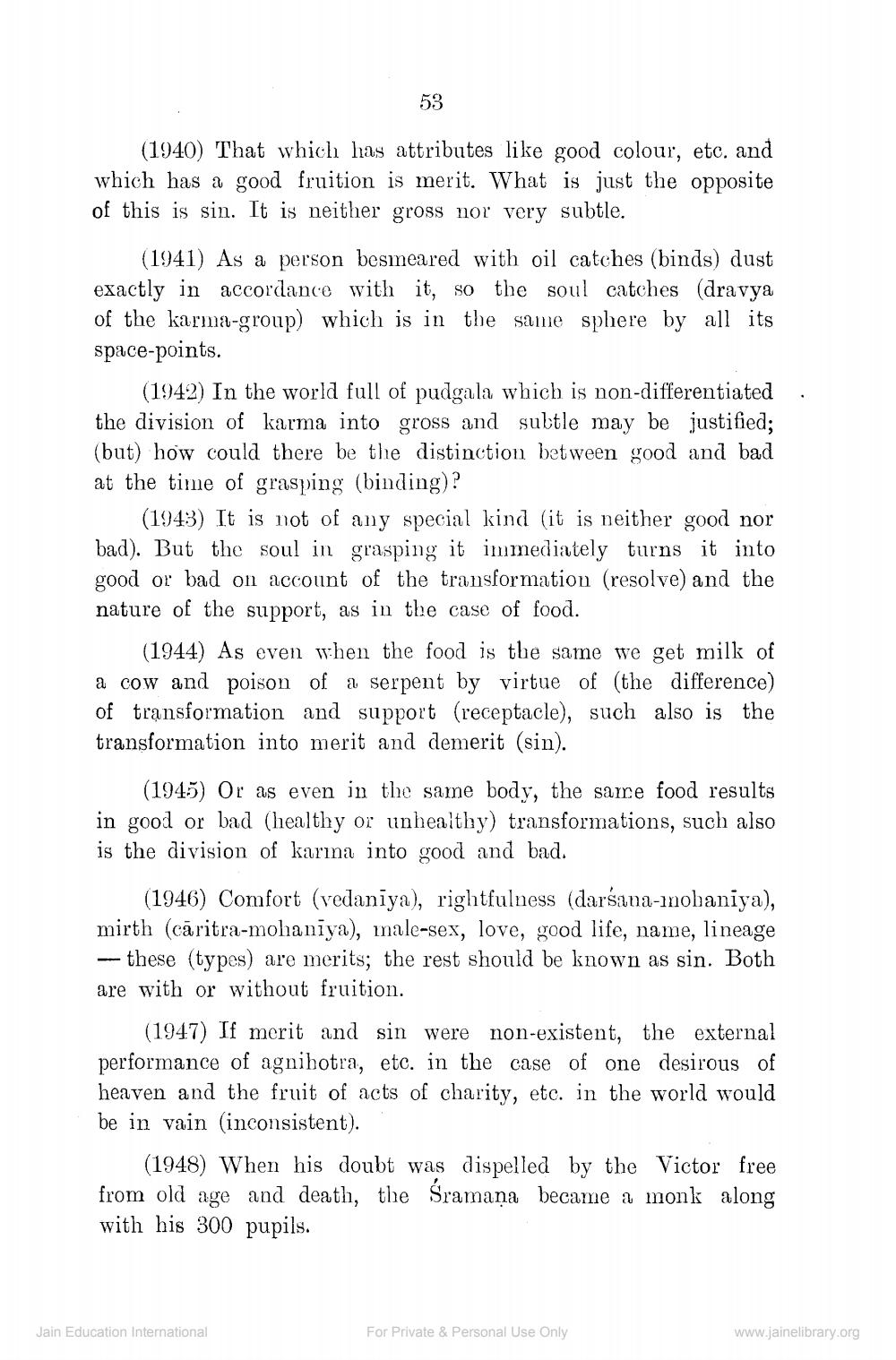________________
53
.
(1940) That which has attributes like good colour, etc. and which has a good fruition is merit. What is just the opposite of this is sin. It is neither gross nor very subtle.
(1941) As a person besmeared with oil catches (binds) dust exactly in accordance with it, so the soul catches (dravya of the karma-group) which is in the same sphere by all its space-points.
(1942) In the world full of pudgala which is non-differentiated the division of karma into gross and subtle may be justified; (but) how could there be the distinction between good and bad at the time of grasping (binding)?
(1943) It is not of any special kind (it is neither good nor bad). But the soul in grasping it immediately turns it into good or bad on account of the transformation (resolve) and the nature of the support, as in the case of food.
(1944) As even when the food is the same we get milk of a cow and poison of a serpent by virtue of (the difference) of transformation and support (receptacle), such also is the transformation into merit and demerit (sin).
(1945) Or as even in the same body, the sarre food results in good or bad (healthy or unhealthy) transformations, such also is the division of karma into good and bad.
(1946) Comfort (vedanīya), rightfulness (darśana-iobaniya), mirth (cāritra-mohaniya), male-sex, love, good life, name, lineage - these (types) are merits; the rest should be known as sin. Both are with or without fruition.
(1947) If merit and sin were non-existent, the external performance of agnihotra, etc. in the case of one desirous of heaven and the fruit of acts of charity, etc. in the world would be in vain (inconsistent).
(1948) When his doubt was dispelled by the Victor free from old age and death, the Śramaņa became a monk along with his 300 pupils.
Jain Education International
For Private & Personal Use Only
www.jainelibrary.org




